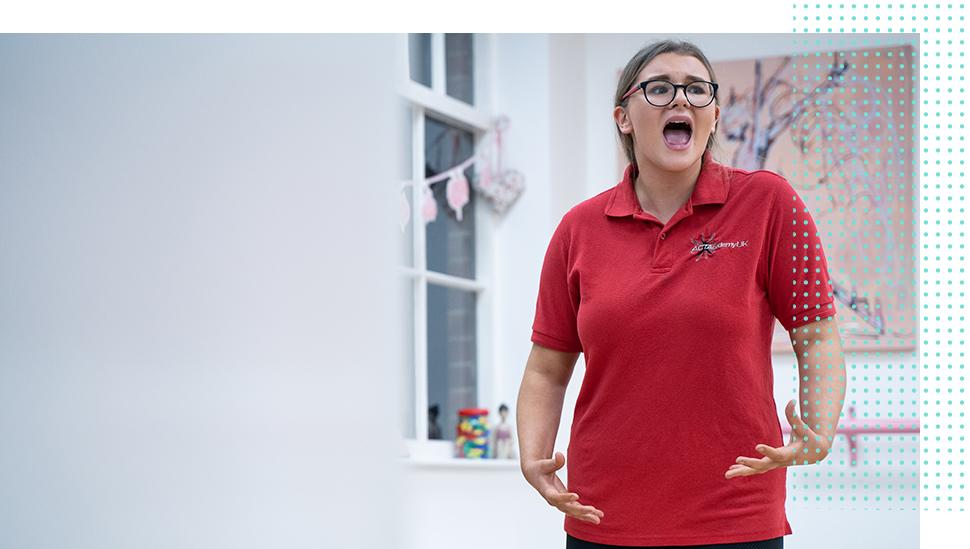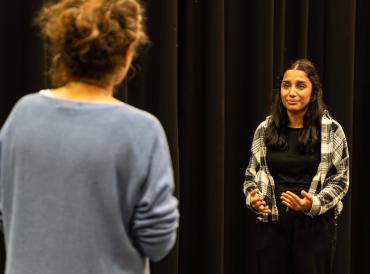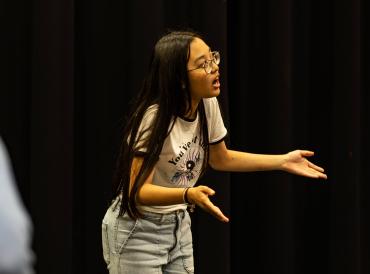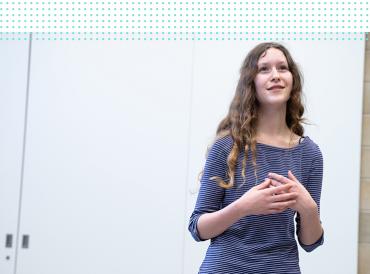Solo/Duo Musical Theatre

About the exam
Our Musical Theatre learners develop their acting skills through song. They use vocal techniques to convey the right mood, and engage with the material to form a thoughtful interpretation of the song.
As they progress through the grades, learners explore characterisation through monologues or duologues, which are performed in character and act as an introduction to their songs. They’ll also deepen their understanding of the history of musical theatre by performing songs from a range of eras, and by researching the work and influence of one of its composers or lyricists.
Learners can either take their Musical Theatre exams by themselves (solo) or with a fellow learner (duo).
These exams are available online.
LAMDA is recognised to award qualifications on the Regulated Qualifications Framework (RQF) in England by the Office of Qualifications and Examinations Regulation (Ofqual), in Wales by Qualifications Wales (QiW), and in Northern Ireland by the Council for the Curriculum, Examinations and Assessment (CCEA).
What does the exam involve?
Type of exam: Solo or Duo
Time allowance: Solo: 10 minutes, Duologue: 15 minutes
- Performing one song from memory (own choice)
- Answering questions about your performance
Please see the LAMDA Musical Theatre Solo/ Duo Graded Examinations Syllabus (2021) for full details.
Type of exam: Solo or Duo
Time allowance: Solo: 15 minutes, Duologue: 20 minutes
- Performing two contrasting songs from memory (own choice)
- Answering questions related to your performances
Please see the LAMDA Musical Theatre Solo/ Duo Graded Examinations Syllabus (2021) for full details.
Type of exam: Solo or Duo
Time allowance: Solo: 25 minutes, Duologue: 30 minutes
- Performing two contrasting songs from memory (own choices)
- Performing from memory a short piece of published or devised text in character leading naturally into each song
- Performing from memory lyrics from a song as a spoken monologue (own choice)
- Answering questions related to your performances
Please see the LAMDA Musical Theatre Solo/ Duo Graded Examinations Syllabus (2021) for full details.
Type of exam: Solo or Duo
Time allowance:
Grade 6: Solo: 35 minutes, Duologue: 40 minutes
Grades 7 & 8: Solo: 40 minutes, Duologue: 45 minutes
- Performing from memory three songs from specified time periods
- Performing from memory a short piece of published or devised text in character leading naturally into each song
- Answering questions related to your performances
Please see the LAMDA Musical Theatre Solo/ Duo Graded Examinations Syllabus (2021) for full details.
Resources & Teaching Materials
Explore our FAQs to find out more about our syllabi and qualifications.
All our syllabi listed below are available for free via download, or you can purchase our full range of publications from our online shop.
You will need:
- Musical Theatre Solo/Duo Graded Examinations Syllabus, with effect from August 2021
These might also be useful:
- Teacher support material - graded examinations in Musical Theatre Solo/Duo (2021), available via Download Centre.
- Knowledge Matters Volume 3
Download the syllabus Visit the online shop







